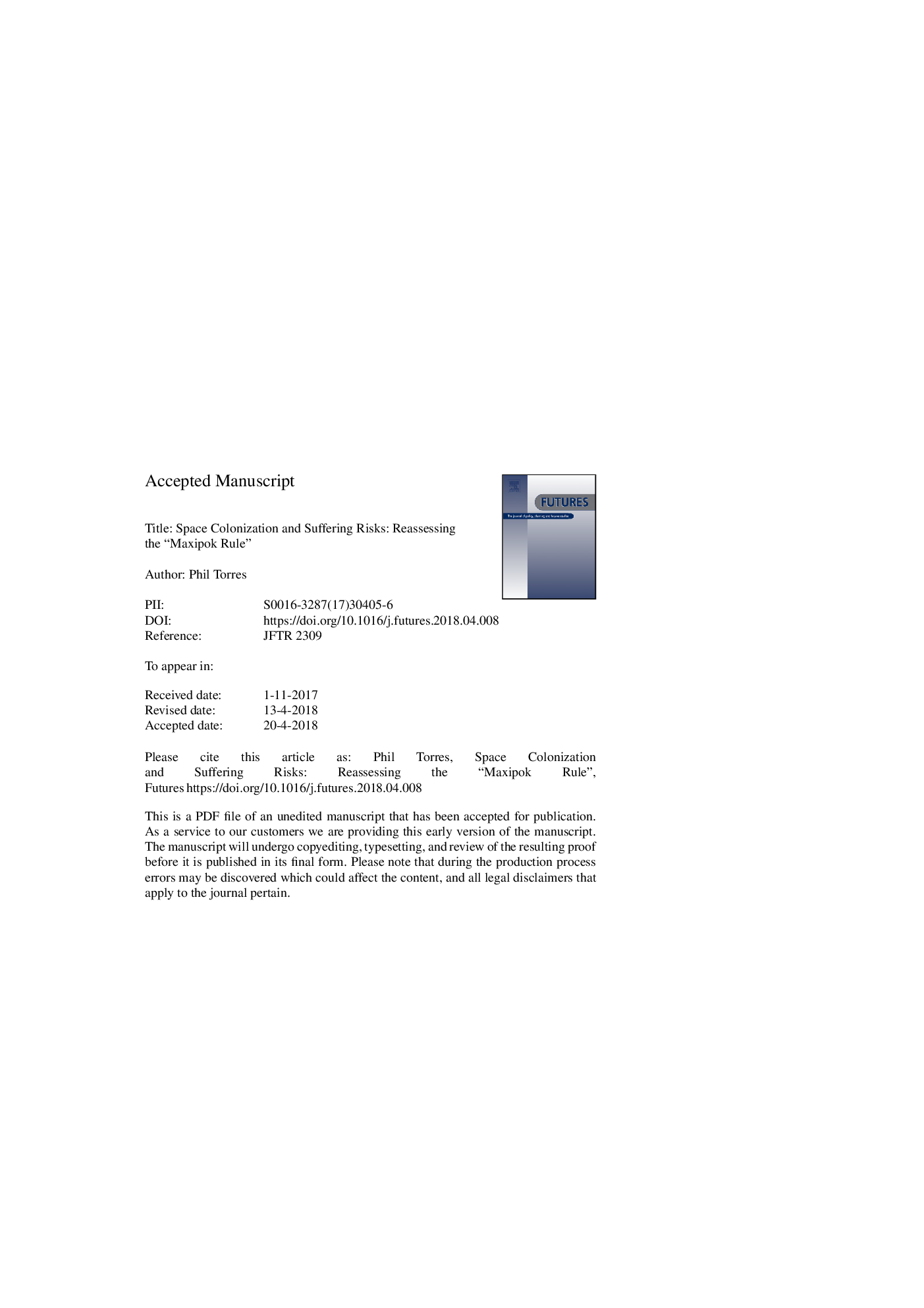| Article ID | Journal | Published Year | Pages | File Type |
|---|---|---|---|---|
| 7423727 | Futures | 2018 | 43 Pages |
Abstract
This article argues that, contra Bostrom (2003), every second of delayed space colonization could be immensely desirable; indeed, the longer the delay, the better, with the best outcome being no colonization at all. The argument begins by hypothesizing that expansion into space will generate a wide variety of distinct species, many having their own cultural, political, religious, etc. traditions. Next, the paper offers reasons for expecting catastrophic conflicts between different civilizations, both near and far, to be the default outcome. Third, it examines some strategies for mitigating conflict, including (i) the establishment of a “cosmic Leviathan” that is capable of imposing law and order within the cosmopolitical arena, and (ii) the implementation of policies of deterrence to prevent one civilization from attacking another. Both of these strategies appear problematic, though, due to (a) fundamental physical limitations on the speed of space travel and the transfer of information, and (b) the advanced weaponry that future civilizations will almost certainly have at their disposal. The conclusion is that colonizing our solar system, galaxy, and beyond will engender a Hobbesian predicament in which all actors are perpetually in fear of being destroyed-that is, when they aren't engaged in devastating wars with their neighbors.
Keywords
Related Topics
Social Sciences and Humanities
Business, Management and Accounting
Business and International Management
Authors
Phil Torres,
